Greyhound amendment ended Florida dog racing. Five years later, some unfinished business.
Five years later, greyhound racing in Florida is indeed finished, the last dogs used for competitions found adoptive homes and the closed kennel clubs are valuable property — but unfinished business remains.
By all accounts Florida Constitutional Amendment 13, approved by a landslide 69% of the vote on Nov. 6, 2018, is a watershed.
"On that night, we definitely had the feeling that we were watching one of the half dozen most significant victories for animal welfare, literally like in the history of the Western world to that point," said Carey Theil, co-founder of GREY2K USA, the advocacy group that spearheaded the campaign.
"That was personally an incredible experience but also I think it turned out to be true. It had a profound impact in encouraging animal welfare efforts for greyhounds and otherwise well beyond Florida."
Christine Dorchak, who co-founded GREY2K USA with Theil, noted the monumental victory in Florida has inspired others to end the sport in the United States and in other countries, from the United Kingdom to New Zealand, to follow suit.
"Florida really has set the standard now for others working around the world, because they can all say if Florida did it, we can do it too and we should do it too," she said.
It's also inspired others in Florida working on other animal welfare campaigns, including the plight of captive orcas.
"It's an amendment that was the start of something that was very good, for the greyhounds, and I still think it can be a model that helps many other species, like dolphins or orcas, and other animals in captivity," said cetacean activist Alejandro Ariel Dintino. "That is my hope."
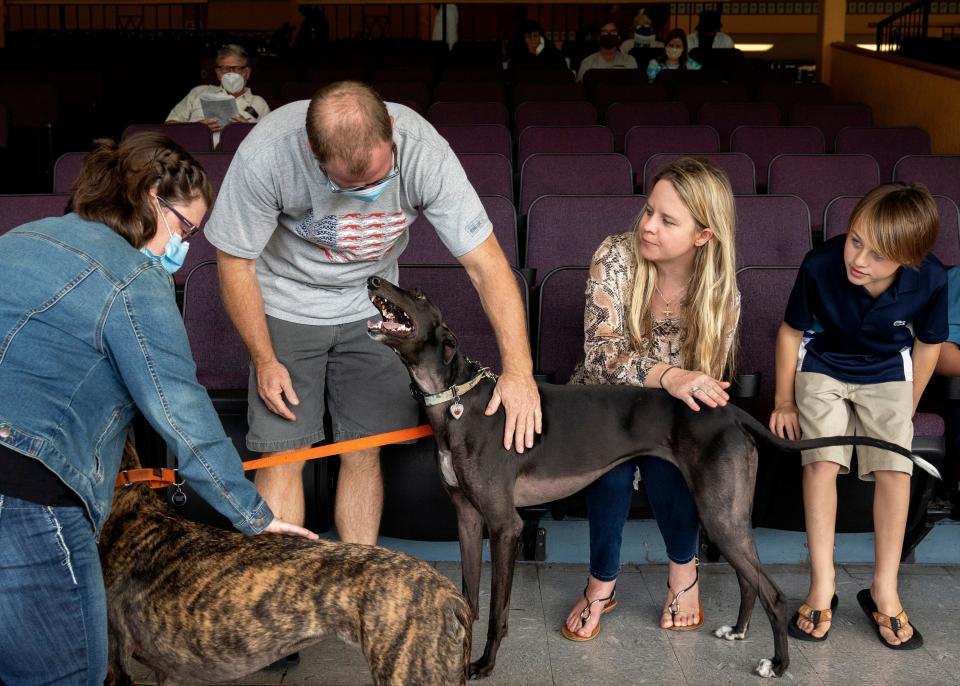
More: Sports betting is coming to Florida Seminole casinos in December. Here's where and what is legal
Florida banning greyhound racing a landmark animal rights campaign
Theil and Dorchak, a married couple, told the story of their efforts to end dog racing in a book released this year, "Brooklyn Goes Home: The Rise and Fall of American Greyhound Racing and the Dog that Inspired a Movement." The book details what was a decades-long struggle marked by hopeful progress and bitter setbacks.
In the end, it succeeded, Dorchak said, because the focus was kept on the canines, the victims of what she said was a brutal life.
"The decision to phase out dog racing was one of compassion and common sense," she said. "The throughline here are dogs. Everyone cares about dogs."
Dorchak said the campaign's ultimately decisive, strategic goal was to inform the voting public about the sport's "corruption and cruelty." She said, in general, a dog died every three days and suffered devastating injuries from broken legs to severed necks running in circles to enrich bettors and dog-track owners.
"When they heard about what was happening to the dogs, and there was an opportunity to do something about it, people went to the polls and voted for the dogs," she said.
The amendment drew support from a broad coalition of animal rights organizations, including the Animal Defense Legal Defense Fund.
"We were heavily involved in the campaign and it was a huge priority for us," said Alicia Prygoski, ALDF strategic legislative affairs manager. "We did as much as we could from a grassroots angle. Really getting in touch with our supporters and letting them know, 'Hey, here's our chance to protect greyhounds in Florida.' "
Part of the reason the Florida amendment was so crucial, she said, is that the state was home to 11 of the 17 dog racing tracks operating in the United States.
"Greyhound racing is so cruel," Prygoski said. "And with so many tracks in Florida, we really felt Amendment 13 was one that was going to have an incredible impact on dogs. It's going to prevent thousands of dogs in the future from suffering through this."
With bipartisan support, greyhound ban left no room for doubt
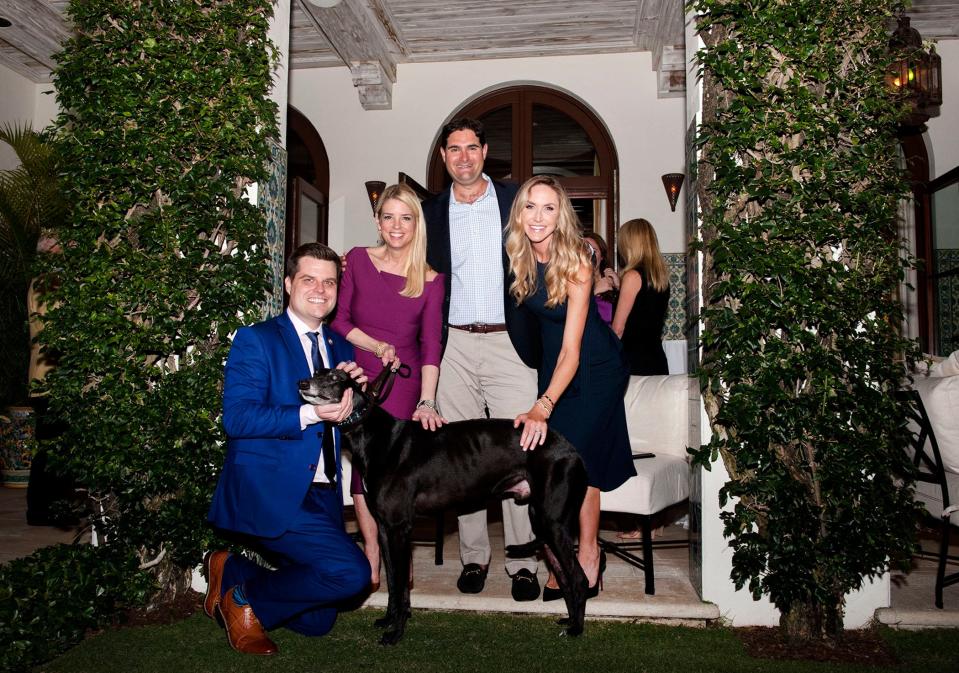
Theil, a political strategist, still considers Amendment 13's passage a "miracle" of sorts in that it drew Republican and Democratic support within a governing class finally willing to stand up to a generations-long pari-mutuel industry and its powerful lobbyists.
In an era of multimillion dollar campaigns to obtain signatures for ballot items, Amendment 13 was greenlit by Tallahassee heavyweights like Tom Lee, a Tampa Republican who served two stints in the Florida Senate, including as president of the chamber. It also included the governor and attorney general at the time, Rick Scott and Pam Bondi, respectively.

It then drew a far-reaching bipartisan coalition including, on the right, Congressman Matt Gaetz and Lara Trump, former President Donald Trump's daughter-in-law, and on the left, now-Congressman Jared Moskowitz and then-Democratic gubernatorial nominee Andrew Gillum.
"What other issue had that coalition? I don't know that there is one," Theil said. "This group of leaders who agree on literally nothing else agreed that dogs deserved better."
Dorchak said her takeaway is that individuals who are able to harness changing attitudes can achieve political change.
"We were just people who decided we wanted to try and help greyhounds, felt that dog racing was hurting greyhounds and set about trying to change that," Dorchak said. "No matter who you are, you can do the same, on all kinds of issues."
ALDF's Prygoski agreed the support from across the political divide is proof that "animal protection issues are bipartisan as "people don't want to see animals suffer unnecessarily."
Yet, while animal cruelty legislation often faces uphill fights when presented in capitals, it's a different matter when it's on the ballot, as in Florida.
"This was the voters. This was democracy at its finest," Prygoski said of the Amendment 13 vote. "With 69% of the vote, there is no doubt what the citizens of Florida wanted."
What's next? Land deals and hope for orcas?

The amendment officially brought dog racing to an end almost three years ago, on Dec. 31, 2020. What will happen to the properties that were home to dog-racing facilities across the state remains to be seen.
On the outskirts of West Palm Beach, for example, the Palm Beach Kennel Club property is now under contract to be sold to a developer that plans to build a massive mixed-use complex on the site. The preliminary plans call for up to 2,000 housing units on the sprawling 47.26-acre former racetrack property.
The betting franchise is not part of the property sale. Pari-mutuel wagering will continue at a clubhouse, either in its current location or elsewhere on the site, said the land purchaser, Frisbie Group of Palm Beach. Other shuttered dog tracks in Florida also maintain some gambling operations as well.
Dintino, the cetacean advocate, said that in 2018 he volunteered to post yard signs to promote the ballot initiative and called on his Spanish-language media contacts to raise awareness of the greyhound amendment. He stood at a polling station near his home in Tamarac on Election Day holding signs and encouraging "yes" votes.
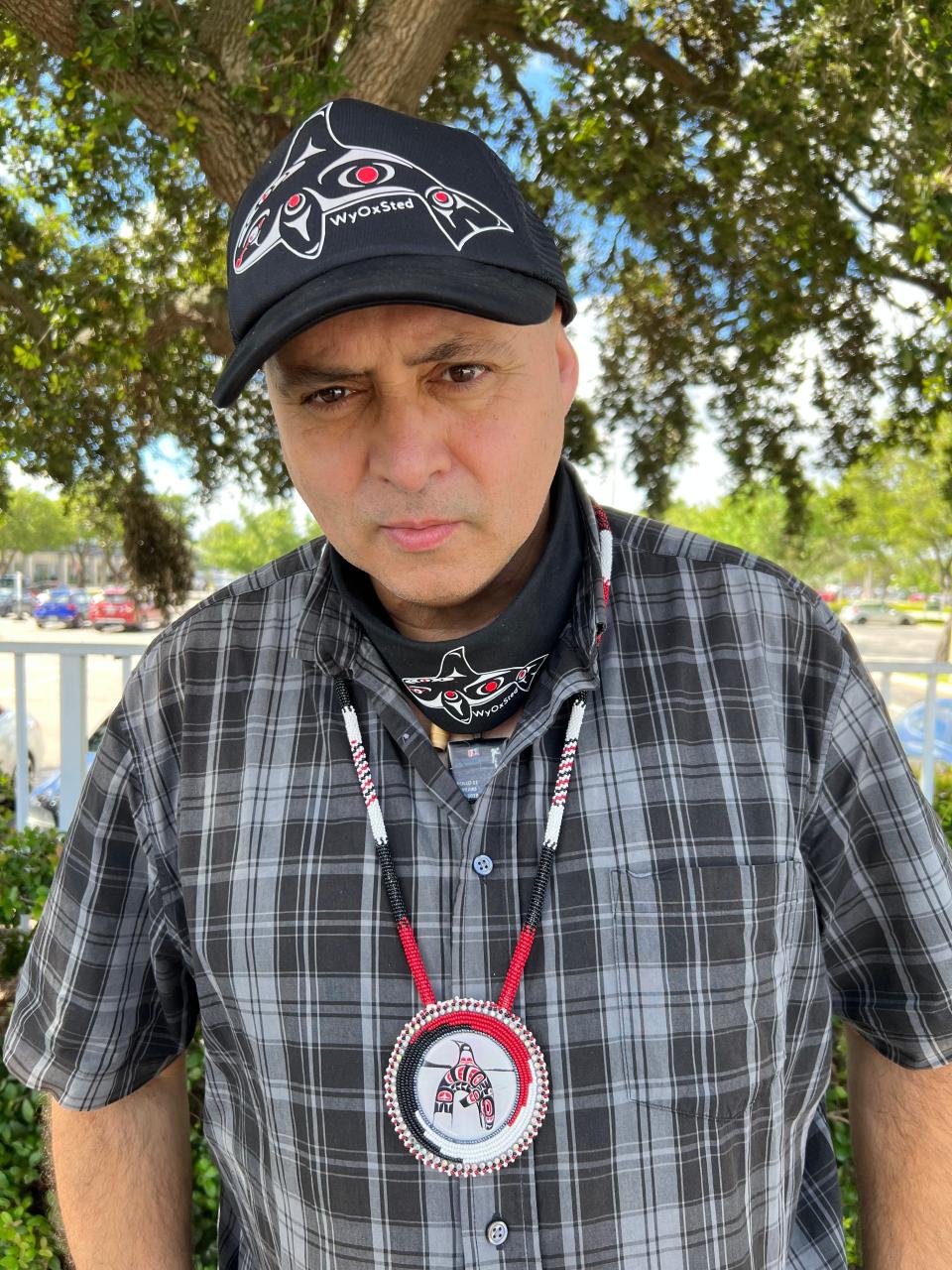
"It was an incredible feeling to see the amendment pass," he said. "I knew these animals, this breed specifically, were suffering greatly."
Dintino and a fellow marine mammal advocate, Annette Martinez, say they now see the greyhound ballot item potentially as a model to pursue a similar amendment for captive cetaceans. The common denominator, they say, is the use of animals, whether for human entertainment or gambling, is wrong.
"Keeping orcas in captivity is a violation of their rights as sentient beings and goes against the principles of animal welfare," Martinez said.
"Times have changed and these parks have the opportunity to do something good by changing their business model from captivity to sanctuary, prioritizing the animals' well-being and conservation in their natural habitats, rather than exploiting them for entertainment purposes."
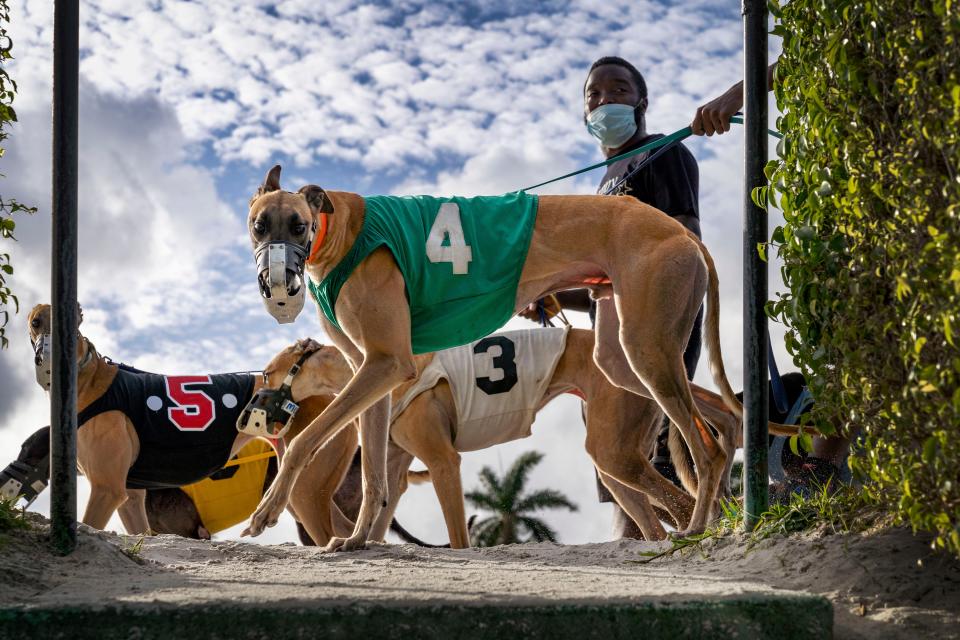
Five years later, the activists pursue greyhound racing 'endgame'
Theil said he understands that Amendment 13 gives hope, if not a blueprint, for other animal-rights activists and their campaigns.
"The fight over greyhounds proves that grassroots advocates can take on and completely abolish a powerful multibillion industry based on animal-cruelty concerns," he said. "That is a precedent that was set."
But he and Dorchak say they remain focused on dog racing.
Since Florida took action, other states, like Arkansas and Iowa, have also ended racing. That leaves, they said, just two tracks in West Virginia in operation, and the couple is hopeful legislation in the Mountaineer State will stop them, even as they and others pursue a national dog racing ban in Washington, D.C.
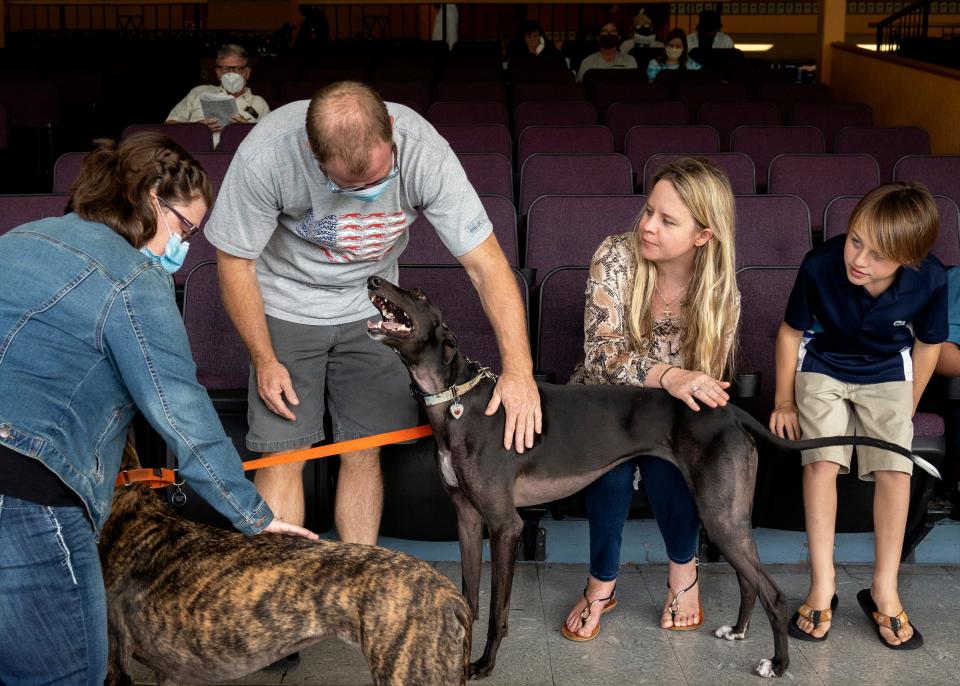
However, foreign dog tracks continue to operate and the boom in remote betting means people in the United States can legally wager on international races, even from Florida. So another front in their battle is to get states to outlaw remote location betting on races outside the United States, as Massachusetts and Colorado have done.
"That is still a problem," Theil said. "That's a concern of ours."
Prygoski at the ALDF said the federal legislation is vital. While 42 states have banned greyhound racing, it's technically legal in eight others. That leaves room for some entity to decide they want to expand the sport.
"Having the federal legislation passed would be the endgame that all of this momentum, the Florida amendment and all the other state laws, have built up to," she said.
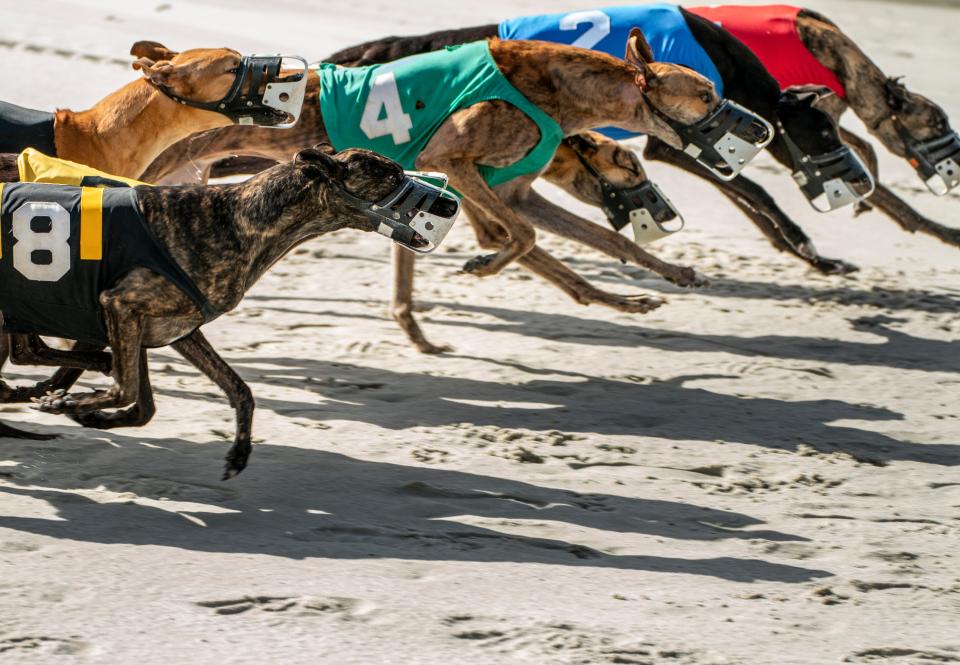
Animal rights: From 'Toki's law' to extinction: Mourning activists carry on after celebrity orca's death
The 'white hats in the ring' harnessed a change in way people see animals, and their relationship with them
Theil and Dorchak say there is a transformation taking place in the way people view their "relationship" with animals. That change, they say, takes into account how humans treat animals and whether their use of them is right, appropriate and moral — and to assess how own individual behaviors and actions contribute to mistreatment.
"It's just true that we human beings are taking a fresh look at our relationship with other animals," Dorchak said. "The question becomes are we treating other animals the way we should? Do we need to do this? Should we do this? In that sense, the greyhounds are ambassadors. And we were the white hats in the ring."
Theil agreed.
The amendment's approval was boosted by the "broader" trend in support for animal rights. That wave, he added, will "affect all these other industries in one way or another," especially if the enterprises using animals do not adapt to change or are seen as abusing them.
"Our society is re-evaluating our relationship with animals generally, and that is something that crosses ideology, crosses gender lines. It crosses socio-economic lines," he said. "It's just a sweeping change that we are seeing in every aspect of out society. We rode on the back of that wave."
Antonio Fins is a politics and business editor at the Palm Beach Post, part of the USA TODAY Florida Network. You can reach him at afins@pbpost.com. Help support our journalism. Subscribe today.
Some of the Florida greyhound tracks that closed after the amendment passed
∎ The Sarasota Kennel Club, which had been around for about 90 years, ended racing in 2019
∎ The Palm Beach Kennel Club near West Palm Beach, which had been running for 88 years, ended racing in 2020
∎ Naples-Fort Myers Greyhound Racing and Poker in Bonita Springs ended racing in 2020
∎ The Daytona Beach Racing & Card Club, once known as the Volusia County Kennel Club and Daytona Beach Kennel Club, ended racing in 2020
∎ The Pensacola Greyhound Track & Poker Room ended racing in 2018
∎ St. Petersburg’s Derby Lane ended racing in 2020
∎ The Orange Park Kennel Club, south of Jacksonville, ended racing in 2020
∎ Miami’s Magic City Casino ended racing in 2019
∎ The Big Easy Casino (formerly Mardi Gras Casino) in Hallandale Beach ended racing in 2018
This article originally appeared on Palm Beach Post: Greyhound amendment ended Florida dog racing. What about kennel clubs?

